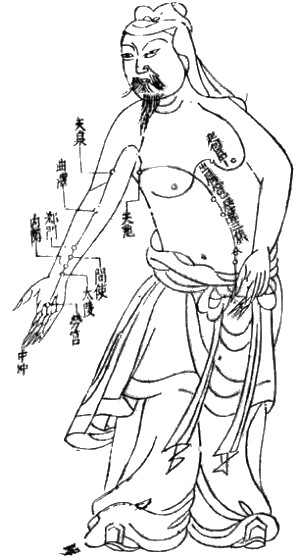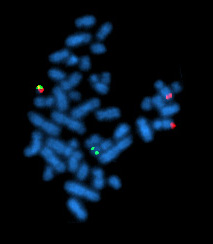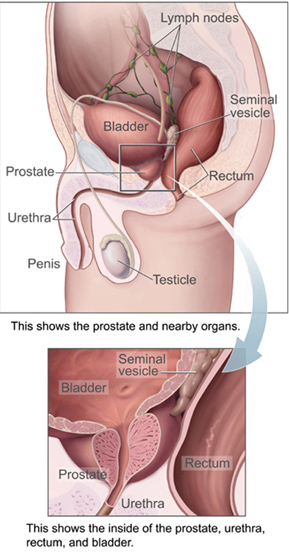Методика Маккензи

Методика Маккензи или Механическая диагностика и терапия (МДТ) — физиотерапевтический метод лечения болей в спине, разработанный новозеландским физиотерапевтом Робином Маккензи и опубликованный им в 1981 году[1][2].
Особенности методики
Автор методики утверждал, что «анатомические диагнозы» на позвоночнике и суставах редко возможны и они имеют небольшую пользу для лечения. По его словам большей эффективностью обладает классификация, ориентированная на жалобы пациента, которые будут изменены под воздействием лечения и давать обратную связь о правильности выбранного терапевтического воздействия. Согласно концепции МДТ основой лечения являются физические упражнения, а мануальные техники сводят к минимуму и используют только в том случае, если упражнения не принесли необходимого результата или же в дополнение к ним. Маккензи утверждал, что если следовать его рекомендациям по самостоятельным занятиям, то в долгосрочной перспективе можно уменьшить боль в спине и шее[3][4][5]. Также он выступал за автономию больного и увеличение его ответственности за процесс восстановления[6][7][8].
В контексте методики решающее диагностическое значение имеет централизация, которая возникает во время лечения[9][10][11][12]. Боль, которая ощущается в дистальных отделах (например в ягодице или бедре) начинает уменьшаться или перемещаться более проксимально и при этом боль нарастает возле позвоночника. Возникновение таких изменений считают прогностически благоприятным и указывают, что используемые воздействия подходят для дальнейшей терапии[13][14][15].
Применение
Исследования подтвердили валидность диагностической классификации Маккензи[16][17][18][19][20][21][22]. И то, что эта концепция так же эффективна как и другие распространённые методы[23][24][25][26][27][23][28][29]. Метод Маккензи используется во всем мире для улучшения состояния при болях в пояснице[30][31][32][33][34], в шее[35] и при наличии жалоб на суставы.[36][37][16][38].
См. также
Примечания
- ↑ McKenzie, R. A. The Cervical and Thoracic Spine : Mechanical diagnosis & therapy : [англ.] / R. A. McKenzie, Stephen May. — 2 ed. — Orthopedic Physical Therapy Products, 2006. — 566 p. — ISBN 978-0-95-836477-5. — ISBN 095836477X.
- ↑ McKenzie, R. A. The lumbar spine : Mechanical diagnosis & therapy : [англ.] / R. A. McKenzie, Stephen May. — 2 ed. — Orthopedic Physical Therapy Products, 2003. — 728 p. — ISBN 978-0-95-836475-1. — ISBN 0958364753.
- ↑ BE Udermann, KF Spratt, RG Donelson, J Mayer, JE Graves, J Tillotson: Can a patient educational book change behavior and reduce pain in chronic back pain patients? In: Spine J, 4, S. 425—435, 2004 doi:10.1016/j.spinee.2004.01.016
- ↑ S May, R Donelson: Evidence-informed management of chronic low back pain with the McKenzie method. In: The Spine Journal, 2008, 8, S. 134—141
- ↑ S May, E Gardiner, S Young, J Klaber-Moffett: Predictor variables for a positive long-term functional outcome in patients with acute and chronic neck and back pain treated with a McKenzie approach: a secondary analysis. In: J Manual Manip Ther, 16, 2008, S. 155—160
- ↑ GaborSagi. De l’héritage de Robin McKenzie (фр.) // Elsevier. — 2015.
- ↑ Information for Patients (англ.). Дата обращения: 20 мая 2020. Архивировано 23 апреля 2021 года.
- ↑ Efficacy of the McKenzie Method in Patients With Chronic Nonspecific Low Back Pain: A Protocol of Randomized Placebo-Controlled Trial // Physical Therapy. Архивировано 17 августа 2020 года.
- ↑ MW Werneke, DL Hart, SZ George, PW Stratford, JW Matheson, A Reyes: Clinical outcomes for patients classified by fear-avoidance beliefs and centralization phenomenon. In: Arch Phys Med Rehab, 90, 2009, S. 768—777, PMID 19406296
- ↑ MW Werneke et al.: Centralization: Prevalence and Effect on Treatment Outcomes Using a Standardized Operational Definition and Measurement Method. In: JOSPT, 38, 3, 2008, S. 116—125, Архивировано {{{2}}}.
- ↑ M Laslett, B Oberg, CN Aprill, B McDonald: Centralization as a predictor of provocation discography results in chronic low back pain, and the influence of disability and distress on diagnostic power. In: Spine J, 5, 2005, S. 370—380, doi:10.1016/j.spinee.2004.11.007
- ↑ A. Aina, S. May: The centralization phenomenon of spinal symptoms — a systematic review. In: Manual Therapy, 2004, S. 134—143
- ↑ L Skytte, S May, P Petersen: Centralization: Its prognostic value in patients with referred symptoms and sciatica. In: Spine, 30, 2005, S. E293-E299, journals.lww.com Архивная копия от 10 июля 2018 на Wayback Machine
- ↑ SZ George, JE Bialosky, DA Donald: The centralization phenomenon and fear-avoidance beliefs as prognostic factors for acute low back pain: a preliminary investigation involving patients classified for specific exercise. In: J Orthop Sports Phys Ther, 35, 2005, S. 580—588
- ↑ M Werneke, DL. Hart: Centralization phenomenon as a prognostic factor for chronic low back pain and disability. In: Spine, 2001 Apr 1, 26(7), S. 758—765
- ↑ 1 2 S May, J Ross: The McKenzie Classification System in the Extremities: A Reliability Study Using McKenzie Assessment Forms and Experiences Clinicians. In: Journal of Manipulative and Physiological Therapeutics, Vol. 32, 7, 2009, PMID 19748407
- ↑ HA Clare, R Adams, CG Maher: Reliability of McKenzie classification of patients with cervical and lumbar pain In: Journal of Manipulative and Physiological Therapeutics, 2005 Feb, 28(2), S. 122—127
- ↑ HA Clare, R Adams, CG Maher: Reliability of the McKenzie spinal pain classification using patient assessment forms. In: Physiotherapy, 90, 2004, S. 114—119, physiotherapyjournal.com
- ↑ HA Clare, R Adams, CG Maher: Reliability of detection of lumbar lateral shift. In: Journal of Manipulative and Physiological Therapeutics, 2003 Oct, 26(8), S. 476—480, jmptonline.org
- ↑ S Kilpikoski, O Airaksinen, M Kankaanpaa, P Leminen, T Videman, M. Alen: Interexaminer reliability of low back pain assessment using the McKenzie method. In: Spine, 2002 Apr 15, 27(8), S. E207-214
- ↑ AG Chorti, AG Chortis, N Strimpakos, CJ McCarthy, SE Lamb: The prognostic value of symptom responses in the conservative management of spinal pain. A systematic review. In: Spine, 2009, 34, S. 2686—2699
- ↑ H Razmjou, JF Kramer, R Yamada: Intertester reliability of the McKenzie evaluation in assessing patients with mechanical low-back pain. In: J Orthop Sports Phys Ther, 2000 Jul, 30(7), S. 368—383, jospt.org (недоступная ссылка — история)
- ↑ 1 2 A Long, R Donelson, T. Fung: Does it matter which exercise? A randomized control trial of exercise for low back pain. In: Spine, 2004, 29, S. 2593—2602, journals.lww.com Архивная копия от 12 декабря 2020 на Wayback Machine
- ↑ Luciana AC Machado, Chris G Maher, Rob D Herbert, Helen Clare, James H McAuley: The effectiveness of the McKenzie method in addition to first-line care for acute low back pain: a randomized controlled trial. In: BMC Medicine, 2010, 8, S. 10, doi:10.1186/1741-7015-8-10, biomedcentral.com Архивная копия от 21 ноября 2015 на Wayback Machine
- ↑ Audrey Long et al.: Specific Directional Exercises for Patients with Low Back Pain: A Case Series. In: Physiotherapy Canada, 2008, Volume 60, Number 4, metapress.com (недоступная ссылка — история)
- ↑ R Schenk, Jozefczyk, A Kopf: A randomised trial comparing interventions in patients with lumbar posterior derangement. In: J Man & Manip Ther, 2003 11, S. 95-102
- ↑ LAC Machado, MvS de Souza, PH Ferreira, ML Ferreira: The McKenzie Method for low back pain. A systematic review of the literature with a meta-analysis approach. In: Spine, 2006, 31, S. E254-E262
- ↑ HA Clare, R Adams, CG Maher: A systematic review of efficacy of McKenzie therapy for spinal pain. In: Aust J Physiother, 2004, 50(4), S. 209—216
- ↑ T Petersen, P Kryger, C Ekdahl, S Olsen, S. Jacobsen: The effect of McKenzie therapy as compared with that of intensive strengthening training for the treatment of patients with subacute or chronic low back pain: A randomized controlled trial. In: Spine, 2002 Aug 15, 27(16), S.1702-1709 journals.lww.com Архивная копия от 10 июля 2018 на Wayback Machine
- ↑ MM Spoto, J Collins: Physiotherapy diagnosis in clinical practice: a survey of orthopaedic certified specialists. In: Physio Res Int, 2008, 13, S. 31-41, PMID 18189334.
- ↑ SJ Horton, A Franz: Mechanical Diagnosis and Therapy approach to assessment and treatment of derangement of the sacro-iliac joint. In: Manual Therapy, 2007 12, S. 126—132
- ↑ ER Miller, RJ Schenk, JL Karnes, JG Rousselle: A comparison of the McKenzie approach to a specific spine stabilization program for chronic low back pain. In: J Man & Manip Ther, 2005, 13, S. 103—112
- ↑ European Guidelines for the Management of Acute Nonspecific Low Back Pain in Primary Care. COST B13 Working Group on Guidelines for the Management of Acute Low Back Pain in Primary Care, 2005, S. 22, Архивировано {{{2}}}. (PDF; 271 kB)
- ↑ RJ Schrupp: Honoring Our «Giants». In: Advance for Physical Therapy & Rehab Medicine, 2004, Vol. 15, Issue 14, S. 61
- ↑ R Schenk et al.: Inclusion of Mechanical Diagnosis and Therapy (MDT) in the Management of Cervical Radiculopathy: A Case Report. In: The Journal of Manual & Manipulative Therapy, 2008, Vol. 16 No. 1, S. E2-E8
- ↑ RA McKenzie, S May: The Human Extremities. Mechanical diagnosis & therapy. In: Spinal Publications New Zealand, 2000
- ↑ S Kaneko, H Takasaki, S May: Application of mechanical diagnosis and therapy to a patient diagnosed with de Quervain’s disease: a case study. In: Journal of Hand Therapy, 2009, 22, S. 278—284 jhandtherapy.org
- ↑ A Aina, S. May: A shoulder derangement. In: Manual Therapy, Volume 10, Issue 2, S. 159—163
Литература
- MJ Kolber, WJ Hanney: The dynamic disc model: a systematic review of the literature. In: Phys Ther Rev, 2009, 14, S. 181—295.
- W Dankaerts, P O’Sullivan, A Burnett, L Straker, P Davey, R Gupta: Discriminating health controls and two clinical subgroups of non-specific chronic low back pain patients using trunk muscle activation and lumbosacral kinematics of postures and movements. In: Spine, 2009, 34, S. 1610—1618.
- MJ Hancock, CG Maher, J Latimer, MF Spindler, JH McAuley, M Laslett, N Bogduk: Systematic review of tests to identify the disc, SIJ or facet joint as the source of low back pain. In: Eur Spine J, 2007, 16, S. 1539—1550.
- MW Werneke, DL. Hart: Categorizing patients with occupational low back pain by use of the Quebec Task Force Classification system versus pain pattern classification procedures: discriminant and predictive validity. In: Phys Ther, 2004 Mar, 84(3), S. 243—254.
- S Young, C Aprill, M Laslett: Correlation of clinical examination characteristics with three sources of chronic low back pain. In: Spine, 2003, 3, S. 460—465.
Ссылки
- McKenzie Institute International (англ.)













